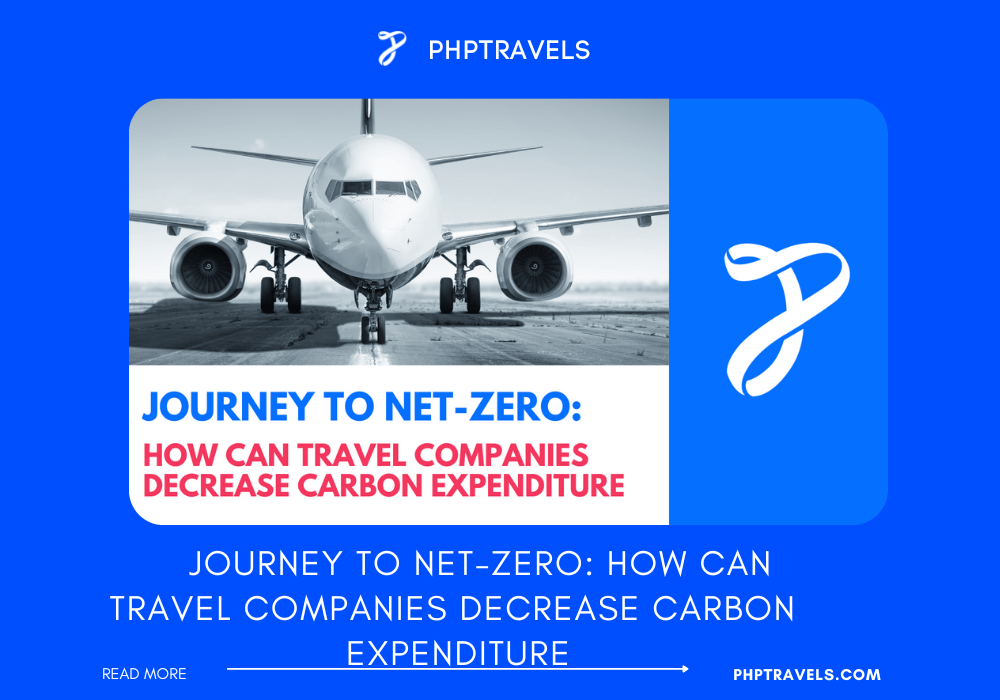The harsh truth is that there are two aspects to the link between climate change and tourism: climate change influences tourism and tourism has an impact on climate change.
The travel sector is one of the most vulnerable industries to climate change. Yes, the effects of this global phenomenon are slow, but they’re definitely there. From extreme weather to more frequent and more catastrophic natural disasters, we’re seeing record-low attendance in places that were previously swarming with people. This harms restaurants, hotels, etc. that rely on tourism, causing a domino effect of unemployment and closed businesses.
The thing is, the industry also contributes 8% of the planet’s greenhouse gasses that cause global warming. To achieve long-term viability and see an increase in sales in travel agencies and other travel organisations, it’s important for those in tourism to take their carbon footprint into account.
If you’re just about to begin your journey to net-zero as a company, below are some actions you can take so that you can do your part in the fight against climate change.
Know Your GHG & Set Your Goals Effectively
If you want to reduce your impact on the environment and the entire planet, the first thing you will have to do is a procedure called carbon accounting for your travel businesses. This will simply measure your greenhouse gas emissions (GHG). Fortunately, there are various private agencies that are carbon footprint certified and can assist your businesses in calculating your CO2 emissions.
Once your GHG emissions have been determined, the data must be evaluated to determine which of the company’s operations produces the most pollutants. Once this study is completed, you can then begin to create strategies that will minimize your emissions. Set your ambitions as high as possible, but keep them feasible.
Create climate action plans to guide the execution of activities needed to achieve your targets, which should be evaluated and adjusted if necessary.
Be Transparent To Your Partners & Customers
Companies must commit to measuring their effects on the environment and become far more transparent about sustainability. Doing this will help your customers make informed purchase decisions.
Give your audience the right information about the impact their chosen vacation has on the places they are going. Companies have the opportunity to establish industry measures for evaluating and publicising their environmental effects. Soon enough, this will most likely be required by legislation in nations most vulnerable to climate change.
Be more transparent by publishing your climate targets and plans. You can even use your efforts as a marketing upside because, sooner rather than later, sustainability will not just be a selling point but instead be something mandatory.
Monitor and report your progress accurately and regularly on your website or any other public platform. If you haven’t yet, now’s the best time to hire remote developers for your travel business.
Collaborate Within and Outside of Your Industry
You’re definitely not alone on this journey towards net-zero. Whenever you have the chance, join and engage in industry alliances and networks to share and learn from the climate activities of others. Take this moment to keep up with the latest developments and share your experiences.
Another great way to collaborate is to support and learn from other Travel & Tourism companies that aren’t as sophisticated as you are, especially SMEs—you will learn a lot from them.
Finance Your Transition
Decreasing your company’s carbon expenditure is a responsibility that is expensive to keep. However, every penny will be worth it as long as the actions you take mean that the world will be a little better than it was before.
The best way to go about this is to recognise your financial requirements in order to meet your climate goals and invest in both mitigation and adaptation strategies. Another way you can do this is by adopting more comprehensive carbon pricing measures to aid in the direction of climate-conscious purchasing decisions.
Raise Awareness & Build Capacity Wherever Possible
Your travel company’s net-zero journey shouldn’t stop with you. Keep your people involved by investing in human capital and providing sustainable training and development opportunities. Prioritise developing climate knowledge and expertise in-house. However, you should also know when outside assistance is required.
If your company has the capacity to do so, appoint a Chief Sustainability Officer and create specialized sustainability teams wherever they are needed.
For your customers, you can make sustainable options the default. Give them the opportunity to opt out rather than opt in.
Lastly, change within the company is inevitable, so it’s best to set up internal accountability systems. The reason for this is so that all current climate commitments and initiatives can withstand future system changes such as mergers, acquisitions, or changes in leadership.
Net-zero For Tomorrow & Beyond
The thing that we have to keep in mind as part of the tourism industry is that the climate crisis won’t kill tourism. We can still go on living our lives and serve the people who demand it. However, we’re already seeing how detrimental its effects are. It’s not only our businesses that are impacted by it—it’s all of us. It’s every human being, every animal, every life living on Earth.
Right now, as an industry and as part of the human race, we are extremely vulnerable to climate change. That’s why there is no better time than now to take action, be responsible, and go forth with our journey to decrease carbon expenditure and achieve net-zero.




 Agoda Hotels Affiliate is ready for production
Agoda Hotels Affiliate is ready for production